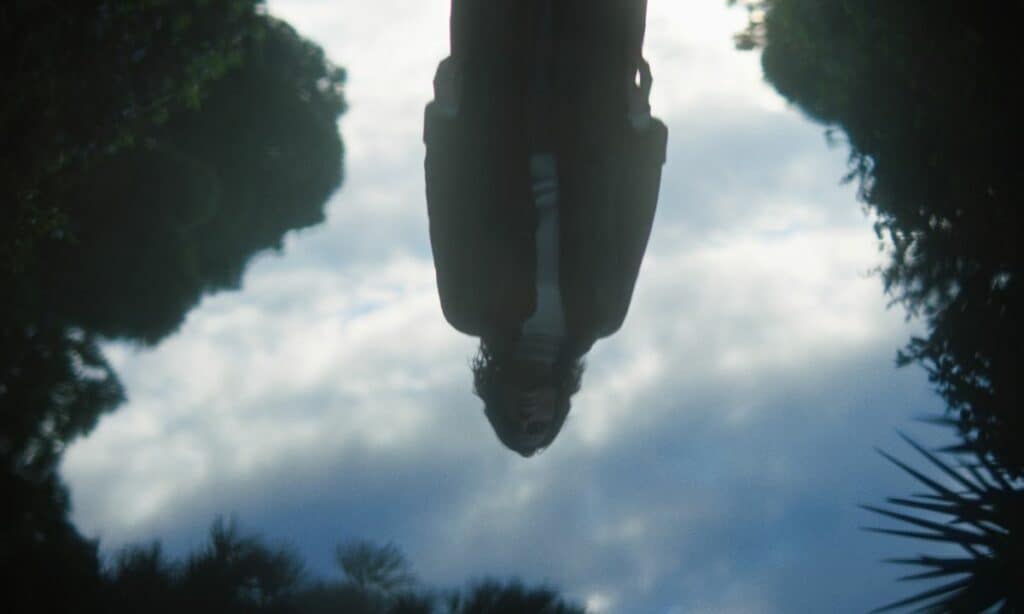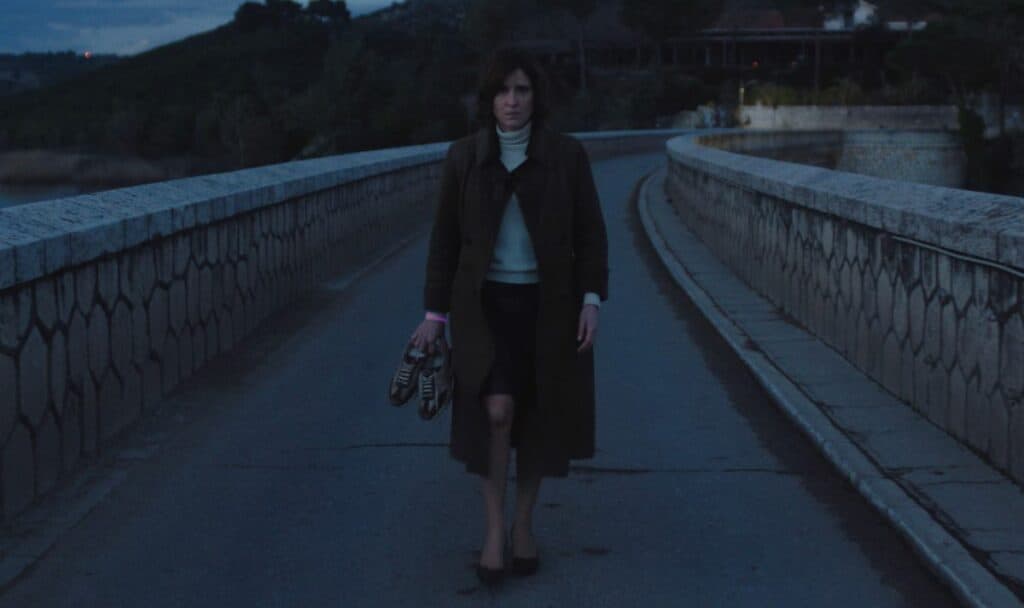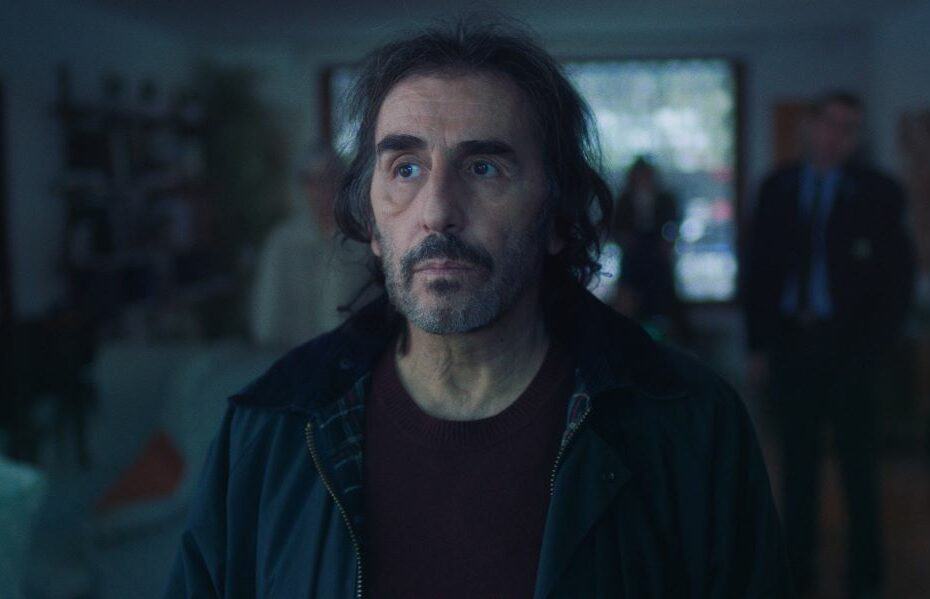Arcadia is the sophomore film by Yorgos Zois, following Interruption in 2015. We meet Yannis (Vangelis Mourikis) and Katerina (ultra-muse of “modern” Greek cinema, Angeliki Papoulia) on their way in a car to a deserted seaside resort. Yannis has been called there to identify the victim of a traffic accident. On arrival at the morgue, Yannis’ worst suspicions are confirmed. They go back to their holiday home. Yannis falls asleep, but Katerina seems to suffer from insomnia and mystically meets a young boy in another bedroom. There is also a garage turned into a bar with a peculiar atmosphere called Arcadia, which is apparently full of life and hedonism, but is everything the way it seems?
When a policeman talks to the couple about the deceased woman, the spectator is not immediately sure about who it might be. A daughter or some other relative? What is the relationship between Yannis and Katerina really like, and why do they seem unable to take off their shoes? The titular bar houses a clientele prone to nudity and sex acts that may or may not help people overcome their grief. This might be some form of limbo where people are stuck between life and death. A sentiment that might feel all too familiar for someone watching an array of films at a film festival. Zoiz’s previous film, Interruption, was presented at Carlo Chatrian’s previous festival, Locarno.

Et in Arcadia ego
The ambience is unreal in an artificial way, and it all feels eerily familiar. Haven’t we seen this somewhere before? If you have been following arthouse films for the last fifty years or so, you probably have. The Hellenic references might remind the viewer of other Greek directors, but early on, it was impossible not to think about André Delvaux. That is not a favourable comparison to any living director, and it didn’t ameliorate my appreciation of Arcadia. The aforementioned Chatrian said at the festival programme press conference that with this film, Zois has ventured into genre. It’s an apt description but not one that I am sure the director would approve of.
One reviewer mistook the film for a debut feature, and it makes perfect sense. Everything in Arcadia feels strained, like a first-time director trying all too hard to prove his worth. The camera angles are “the right ones” in a formally academic way, but what is supposed to be artistic feels redundant and repetitive, and when you see the camera slightly above and behind the car for the umpteenth time, the malaise sets in. Arcadia is the polar opposite of Pepe, where every cut and camera placement comes across as utterly inspired. In contrast, this is arthouse cinema at its most portentous and annoying.

As stated earlier, the director’s debut was nine years ago. It would be an exaggeration to say that it has been a long wait. The quote Et in Arcadia ego normally refers to death, but literally means, “Even in Arcadia there am I” In this film, the I is rather Yorgos Zois than death itself. With all the technical skills employed in the film, it still comes off as a stilted attempt to deal with topics like death and grief. Any spectator would be better off watching Un soir, un train instead.
Arcadia was presented in the Encounters section of the 2024 Berlinale. Find all coverage from this year’s edition here.

